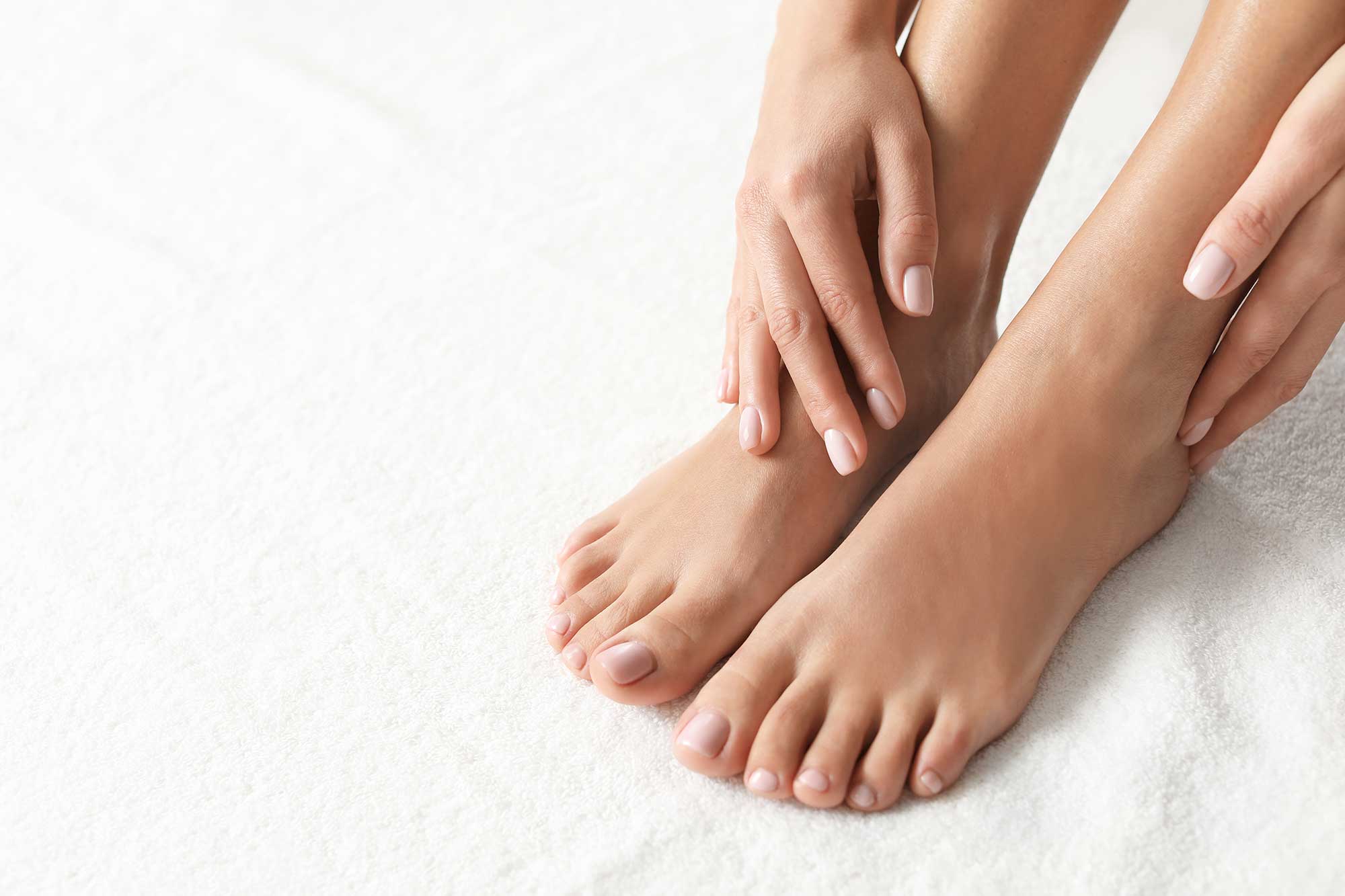It goes without saying that we still practise social distancing, where we can, wash our hands, sneeze with courtesy and so on but you also need to support your immunity.
Also, get your flu shot. It might make you feel a bit yuck the next day as mine did, but infinitely better than the full-blown flu. Below I have collected the top tips from a variety of experts on supporting or “boosting” your immunity to prevent infections, including COVID19. It doesn’t mean you won’t catch anything but it may mean it is less severe and you can fight it off faster.
Naomi Ferstera’s Top Tips To Support Your Immunity

The title of this article was originally going to be the sexier “Boosting Your Immune System…” but it was pointed out to me by Naomi Ferstera, an accredited exercise physiologist/exercise scientist, nutritionist and lecturer, that:
“There is significant misconception around the concept of “immune boosting” supplements, foods etc. What most people don’t realise is that it’s not actually possible to “boost” your immune system in this manner and that you also don’t want to be trying to boost your immune system. The reason for this is an overactive (i.e.boosted) immune system is what causes hypersensitivities (allergies etc.) and autoimmunity (type 1 diabetes, MS, psoriasis etc).”
Naomi Ferstera
Having an autoimmune condition myself, I realised that I didn’t want to so much “boost my immune system” as helping people get as healthy as possible can, reentering society and the community again.
Naomi Fersera has worked in the health and fitness for 20 years, so she has a deep understanding of how to keep people healthy.
Quality Sleep
The number one thing we can do for our immune system is get a good night sleep. We need approx. 7-9 hours of good quality sleep each night. Research shows us that when we are sleep deprived, we get an immediate suppression of our immune function, of particular note is the suppression of the immune cells that play an important role in fighting carcinogenic cells.
Diet and Exercise
After sleep, it’s hard to argue that diet and exercise are not the next most important. From an exercise perspective, ALL exercise will positively affect our immune function with research showing that exercise positively affects both our acute (immediate) and chronic (chronic) immune response.
Good Nutrition From Fresh Foods
From a food perspective, there are a number of foods that are very important for a healthy immune system the most important being adequate protein intake. Protein is required to build antibodies (which fight pathogenic invaders such as viruses and bacteria). After protein, things like antioxidants and polyphenols are important but Naomi wouldn’t recommend supplementing with them, rather eating them in food they naturally occur in (fruits and veggies).
Vitamin D to Support Your Immunity
Naomi believes that the one supplement that is likely to be of benefit – vitamin D. We are still learning much about this key vitamin/hormone but what we do know is that it plays a key role in a healthy immune system. Vitamin D is called our sunshine vitamin as it’s produced in our skin with cholesterol and UVB from the sun. Unfortunately, it’s likely that much of the population is deficient due to things like our sun-safety adherence, working indoors and generally spending less time outdoors.
Personal Experience of Vitamin D Deficiency
This is something that I discovered the hard way, by having a score of less than 10 when to be healthy, we need a score of over 50 – 100. I experienced deep aches in my bones and muscles, I was seriously fatigued (more than my usual fatigue from having an autoimmune condition) and my favourite compounding chemist Shane at Elixir Pharmacy in Melbourne, suggested getting tested. I ended up taking a megadose of vitamin D. Normally the tablets in the chemist are 1000iu, but I took a dose of 100,000iu and daily I now take a dose of 4000iu per day to build up my levels, and am genuinely feeling the difference. Isolation may be contributing to low vitamin D levels, so go get them checked if you feel fatigued, achy or just not yourself. You’ll need to educate your Dr about the megadoses, as requires a prescription, but totally work the effort.
Wellness Expert Andi Lew’s top 5 Tips To Support Your Immunity



1. Have regular chiropractic care
Chiropractors are experts in removing nerve system interference. Your nerve system is the way you perceive the world, adapt to stress and control every cell, tissue and organ in the body. The nerve system is the brain, spinal cord and nerves that branch off that. Spinal misalignment distorts the signal from the brain to the body. Gentle, specific and scientific chiropractic adjustments remove nerve system interference and because the nerve system controls the immune system: The immune system gets a boost!
2. Avoid toxins in personal hygiene products
This includes choosing things like SLS and Paraben free shampoo, soaps and toothpaste. These chemicals are carcinogenic and impact on the immune system.
Lew has developed a chemical free hand sanitiser which is without the hormone disrupting chemical called Triclosan. It’s still powerful as per the WHO guidelines and with added anti microbial and anti bacterial properties like Clove bud oil.
3. Minimize radiation and EMFselectro magnetic field
This has been known to attack our cells. Andy’s written a book called Wellness Loading; a digital detox. Make sure you’re taking time off tech and recharging with nature. You can also research and buy EMF protectors for your home to help the effects of 5G radiation.
4. Get quality and adequate sleep
We heal when we sleep. If you’re using tech before bed; your body will be robbed of the hormone called melatonin. This sleep hormone helps us to have a quality slumber. Try to synchronise with the lunar cycle and fall asleep with the sunset at least a couple of times a week. This will help you get better quality sleep as the hours you receive before midnight are worth two hours after. Even if you wake at 4 am, you will have had a refreshing sleep.
5. Use relaxing oils to help you feel less anxiety and stress
Our immune system is compromised when we receive cortisol spikes. It’s important to slow the adrenaline release from stress and fear. Excess cortisol over a period of time can decrease our immune system. I’ve developed a lavender calm oil roller to keep in your pocket or handbag. It’s in my Love Health natural products range.
Dr Michael Mosley: Enough sleep is a key shield for health workers against COVID-19

(Note: not a sponsored or affiliate link, just a damn fine bed)
We’ve all heard about hand washing, but did you know that getting a good night’s sleep is also vitally important for combating the virus because it boosts your natural immunity? Numerous studies have shown a clear link between stress, poor sleep and vulnerability to viral infections.
Michael Mosley
Jennifer May, nutritionist, author and wellness speaker’s top tips

With the current global health crisis and flu season looming, ensuring optimum health and wellness for the whole community has never been more important. A strong immune system is the best defence against illness, so Califia Farms has teamed up with nutritionist Jennifer May for ways to help us get through this together.
According to Jennifer, a healthy diet (along with good sleep and regular exercise) is the number one way to boost immunity. Here are 5 of her tips to increase your wellness today and keep you fighting fit.
1. Eat your fresh fruits and veggies
Fresh fruits and vegetables are the richest source of vitamins, minerals and antioxidants, providing key nutrients such as Zinc, Vitamin C, Betacarotene and Vitamin E. These nutrients help to ensure steady production of white blood cells and other natural defence processes. A daily breakfast smoothie (see recipe below) full of leafy greens and almond milk is an easy way to sneak in more veggies.
2. Keep your junk and sugar low – but don’t go sugar free
A 1970s study determined that our white blood cells experience post-sugar fatigue for several hours after consumption prompting advice to reduce sugars in order to improve innate immunity. However, further studies indicate we need glucose to fight viral infections. So, what’s the answer? Reduce processed sugars and maintain a good intake of fresh fruits. Califia Farms’ plant milks and cold brew coffees have low to no sugar which can help long-term. Also don’t shy away from carbs such as pumpkin, sweet potato and oats.
3. Eat your protein
A regular intake of healthy protein ensures adequate serotonin (makes you calm) and melatonin (helps you sleep) levels which greatly assist immunity. Aim for at least 100g of protein each meal such as tofu, lentils, chickpeas, quinoa and almonds.
4. Ditch cow’s milk in favour of plant-based milks
Most dairy products can increase inflammation, digestive distress and heart disease risk, but plant-based milks such as Califia Farms Unsweetened Almond Milk offer a great, varied selection of minerals and vitamins including calcium, Vitamin E, manganese and magnesium. Almonds are also a great source of antioxidants (which improve hormonal balance, reduce cancer risk and lower cholesterol) and plant tannins (they reduce harmful bacteria in the gut and increase healthy gut bugs).
5. Eat medicinal foods
Many foods have high health benefits such as citrus fruits, pomegranate, turmeric, ginger, green tea, plus garlic and mushrooms which both boost white blood cell production. Garlic is also a natural antiviral and antibiotic, can help bring down a fever and relieve congestion.
Kick-start your wellness defence journey today.
Jennifer May’s breakfast smoothie to support your immunity
Ingredients:
- 1 handful of rocket
- 2 ripe kiwi fruits
- ¼ avocado
- 2-3 cups of Califia Farms Unsweetened Almond Milk
- 1 tbsp hemp seeds or pumpkin seeds
- 2 tsp raw cacao or organic cocoa powder
- 1 tsp of organic honey (or manuka if you have it – which heals stomach ulcers)
- 1 pinch of ground chilli (for improved heart health)
Method:
- Blend all ingredients and serve.
About Califia Farms

Inspired by Queen Califia, the mythical namesake of the state of California, Los Angeles-based Califia Farms was founded in 2010 and has become one of the fastest-growing natural beverage companies in the U.S. Renowned for its artfully packaged and disruptive curvy bottles, Califia Farms makes a wide assortment of plant-based beverages including delicious plant milks and ready-to-drink cold brew coffee. Califia Farms is on the pursuit to return food to its original nourishing purpose by applying creativity and innovation to make plant-based beverages that are both good-for-the-world and just plain good to drink.
For more details on Califia Farms and recipe inspiration visit: califiafarms.com.au or head to @califiafarms / #califiafarmsau
Entity Health Top Tips for Health To Support Your Immunity
Entity Health is a line of Australian-made nutraceuticals developed to improve specific health and skin conditions at a cellular level. Its supplements – containing ingredients from food sources or naturally occurring in the body – help to manage lifestyle-based conditions, delay the onset of age-related conditions, and improve wellbeing. Since it was launched in 2017 by its Singaporean publicly listed parent company, iX Biopharma, Entity Health sells 11 nutraceutical products across 5 countries. Entity Health products are designed, developed and manufactured under Good Manufacturing Practices in Australia. For more information, visit entity-health.com.


Vitamin C with Glutathione
As we head into winter, maintaining good antioxidant levels in our body – by taking vitamin C in combination with glutathione – may strengthen the immune system. Two pharmacology experts say this combination could be beneficial to our health as a preventative measure during colder periods of the year.
Known as the master of all antioxidants, glutathione is a protein made from three amino acids (cysteine, glycine and glutamate) that is naturally produced by the liver and has a significant and protective role in maintaining the body’s immune system. Glutathione helps to combat free radicals – molecules that can damage your body’s cells – and is known to assist in preventing cell death and in maintaining the optimal activity of immune cells which the body needs to resist diseases and build immunity.
“It’s widely held that vitamin C is an essential nutrient that contributes to good immunity as it supports cellular function and essential bodily processes.[1] Health professionals should consider glutathione in combination with vitamin C to maintain adequate blood levels of these two antioxidants, especially for those whose diet lacks the two essential nutrients, vitamin C and the essential amino acid, cysteine.”
Dr Lim
Dr Stephen Lim is a Perth-based pharmacist and scientific advisor for research and development in the pharmaceutical industry. Dr Lim says that while there have been many studies on vitamin C’s role to support your immunity and reducing the duration of a cold, glutathione has a direct role in anti-viral activity due to its inhibition of virus replication and by enhancing production of specific T-cells (white blood cells) which target viruses and virus-infected cells. Glutathione is also known to maintain levels of vitamin C in the body by ‘recycling’ the vitamin, enabling the body to utilise the nutrient more efficiently.
“Certain viral infections attack the lung cells, leading to an aggressive inflammatory response by the body. This host response to the virus can be exaggerated leading to the release of vast amounts of inflammatory proteins called cytokines and results in oxidative damage to the lung cells themselves. Increased oxidative stress is the main cause of lung injury, ultimately manifesting as breathlessness and decreased blood oxygen levels, which in severe cases can lead to acute respiratory failure and death. “
“Hence, it is very important that our body has sufficient amounts of powerful antioxidants, like glutathione, to neutralise this oxidative damage and minimise further destruction of lung cells – particularly during the cooler months when the immune system is more susceptible to germs.”
Dr Janakan Krishnarajah, an Australian physician specialising in Clinical Pharmacology and Internal Medicine,
Jacinta Callaghan Nutritional Medicine and Emotional Health Specialist – 5 Tips to Support Your Immunity
With extensive knowledge in Biochemistry, Microbiome, Genetics and Physiology and counselling, coupled with qualifications in Nutritional Medicine and Emotional Health, Jacinta is on a mission to help women better understand the human mind and body really. Her speciality is supporting women to reduce the impact of past experiences and to help create a pathway to a brighter, happier and healthier future.
Eat a whole food, nutrient-dense diet
Our immune system relies on nutrient-dense whole foods to function well. Infections are often not due to the infection itself but the body’s inability to fight because of nutrient deficiencies, inflammation and stress.
Protein is critical for immune function and lowering our risks. Eating two 125gram servings of organic, clean animal protein and/or plant-based proteins will provide adequate levels.
Multiple servings of colourful vegetables, high in nutrients will enhance the immune system. Aim for 6-8 different vegetables a day. Each vegetable adds to an improved microbiome and immune system.
Prebiotic and probiotic vegetables actively improve your microbiome and immunity and include sauerkraut, kimchi, onions, garlic, leeks, artichokes, asparagus, seaweed and flax seeds.
Adding garlic, onions, ginger, and turmeric to your meals has wide ranging antimicrobial, antibacterial and anti-inflammatory immune boosting effects.
Cut out sugar and refined carbohydrates
Right now is a great opportunity for a sugar and refined carb detox. Studies indicate that refined sugars suppress your immune system and cause inflammation. Reducing refined carbs and sugar will enhance your immune system and your overall health.
Drink plenty of warm filtered water
Either plain or in soups, broths or herbal teas. This will support all your bodies’ functions including the immune system.
Get sufficient sleep and reduce stress
Restful Sleep restores and heals the body. Without adequate rest, good immune function is damn near impossible! Aim for seven to eight hours a night of good quality sleep. It’s a good time to create a habit to practice a range of relaxation and breathing techniques throughout the day to help with stress and allow the mind to take a break (from you and the outside world).
Get outside in the fresh air and experience the healing power of nature
Gentle walks of 30-40minutes in the fresh air are all you need to start. Nature will do the rest for you.
Endeavour College of Natural Health – Tips To Boost Immunity
How to support your immunity – the natural way
The ins and outs of immunity
Immunity is a broad term to describe a complex system of bodily functions. There are two key types of defence – barrier and innate.
Barrier defence is the skin and the lining (mucous membranes) of the eyes, ears, mouth and respiratory tract, gastrointestinal tract, urinary and reproductive tracts, which all act as a physical barrier to external noxious agents that can cause illness. Mucous, sweat, saliva, digestive acids, urine and stools work to flush away or denature noxious agents.
Innate immunity is the body’s non-specific cells that respond to the presence of a noxious agent. They will engulf, and destroy these. These are present in close proximity to the barrier defence.
The body will also respond by producing inflammation and other chemical messenger agents to increase circulation to a site, carrying with it white blood cells triggering other immune system responses.
Natural ways to support your immunity
The best way to boost immunity naturally is to ensure your nutrition is adequate. Adopt rainbow eating practices (ensure you are eating fruit and vegetables in every colour) and each day focus on a of range of plant foods, which are excellent sources of carotenoids that help support a healthy immune system. Try adding orange to salads, making a fresh mango smoothie, snack on carrots and eat roast pumpkin alongside a good protein source for dinner.
Outside of making sure that the body has all of the nutrients required to make the cells, excretions and chemical messengers, there are a number of other aspects to supporting immunity including adding culinary herbs and spices to your diet. Aromatic herbs and spices don’t add flavour, they are antimicrobial. Slow cooked meals that include an adequate serve of protein, your favourite vegetables, culinary herbs and spices are easy to digest and deliver some of the required nutrients for healthy immune support.
The addition of herbal teas can also support with antimicrobial action, and depending on the herb may have other properties such as aiding sleep, boosting energy and also building immunity.
Try adding a ginger and lemon (both plant-based antivirals) juice to your daily routine

- 1 lemon – skin removed
- A 5cm knob of ginger
- 1 litre of water
- 1 tablespoon of unprocessed honey
- A pinch of cayenne pepper
In a high speed blender, pop the ginger and lemon into the blender and blitz well.
Move to a saucepan on low heat, add water and cook on a low heat until gently simmering, to make a tea. Add honey to taste and a pinch of cayenne pepper.
Lifestyle changes to support your immunity
Get adequate sunshine every day. Even just half an hour in the morning with some skin exposed will help you reach your vitamin D quota. Vitamin D is essential to a healthy functioning immune system, and sadly many Australians are Vitamin D deficient.
Adequate sleep supports appropriate immune responses. Limit electronic device use before bed, especially blue light from mobile phones, laptops, and tablets. The blue light has been found to reduce melatonin, which is the hormone that aids sleep onset. If you must use a device, set the light to night mode to increase the yellow light.
Tips to support your immunity
Wash your hands well and regularly during the day to prevent the transmission of flu viruses and avoid touching your face as much as possible.
Inhaling essential oils or oil based room sprays can also help create a healthy environment.
Kirsty Taylor: The Nourishing Way To Boost Your Immune System

As we head into winter and out of lockdown I feel like it’s the perfect for a timely reminder that we need to keep our immune system robust. It’s not just about focusing on it when we become ill.
Kirsty Taylor: The Nourishing Way
1. Eat Enough Protein
Ensure you have a serve of good quality protein with each meal from a variety of sources. The immunoglobulins in our immune system are proteins, made from the protein we eat. Aim for 0.8-1.0g per kilo of body weight each day.
2. Optimise your gut health
80% of our immune system is on the outside of our digestive system. If our digestive system is inflamed it can signal to our immune system to up regulate and direct resources away from areas like our respiratory system. Ensure you are consuming lots of fresh fruit and vegetables, complex carbohydrates, good quality meats and healthy fats. Limit those foods that are devoid of nutrients – processed foods and drinks.
3. Consume antimicrobial foods
This will help your body increase its defences against any nasties that manage to make it into your system eg onion, garlic, olive oil and cinnamon. Kirsty cannot recommend enough making up this recipe – Immune Boosting Honey. This contains a very hefty dose of antimicrobials as well as being antiviral. Honestly, everyone Kirsty has given this to has seen the benefits. The ultimate Food As Medicine!
4. Strengthen your respiratory system
This is much like strengthening a muscle, You need to exercise it. Breathwork is amazing for this. The Buteyko breathing method has been shown to improve the respiratory function, however, any breathwork practice will help.
5. And Yet Again! Vitamin D! Sunshine!
This is Kirsty’s favourite tip. Yes, we may be in winter. But get outside. Get the sun on your skin. Kirsty cannot tell you how much this is necessary for your immune system. If you can take your shoes off and feel the ground-contacting with your feet. A very important factor in overall health and wellness.
Melissa Smith: Naturopathic Nutritionist and Coach

Emerging insights are showing that the SarsCov2 virus can evade the innate immune system (our first line of defense), so the immune system is unable to attack and deal with the virus before infection occurs. So, not only is supporting general immune health with nutrients like Vitamins A, C, D, and Zinc needed – enhancing the immune system’s surveillance ability so it can detect the virus earlier is important, too.
There are several herbs that have been shown to improve the surveillance of the innate immune system, such as Astragalus, Andrographis and Reishi mushrooms that support the function of ‘natural killer cells’ and herbs like Berberine, Echinacea and Goldenseal that support Th1 helper cells.
Another aspect to consider is that someone with inflammation or an inflammatory condition should focus on resolving inflammation, as escalating inflammation in someone with covid-19 has been shown to worsen outcomes. Anti-inflammatories like curcumin, bromelain, resveratrol and sulforaphane have been shown to be helpful.
Dr Zara Celik: Integrative Health And Wellness Expert

Top 5 tips to boost your immune system
1.Sleep
Be consistent with bedtime and get enough sleep to help the body repair and heal itself. Be consistent by implementing bedtime rituals. Such as taking a bath, shower and applying massage oil. Having non-petroleum-based candle and dining the lights in the bedroom.
2. Exercise and sweat more
This helps to help the lymphatic system to flush toxins out of the body.
3. Drink enough filtered clean water
This is for your body weight for both cellular hydration and detoxification. For every 20-25kg bodyweight, you must have 5 glasses of water. For example, 60kg bodyweight needs 3litres.
4. Gut health is extremely important
Gut health is vital when it comes to wellbeing and immune system. If you are experiencing any symptoms such as bloating, flatulence, constipation, diarrhoea, pain, cramps which may result in feeling sluggish, tired and fatigued and low. Book an integrative wellness consultation with Dr Zara Celik, either in person or in virtual to discuss your needs and get to the root cause of your symptoms and recommend the best diet based on your microbiome health for better immunity.
5. Nutrition and supplements
Eat more whole-food, local, seasonal and fresh. It’s important that you eat a diet that is right for you and based on microbiome studies. Eat organic where possible otherwise follow “Clean Fifteen and Dirty Dozen” list.
Matt Legge: Naturopath and head of Research and Development for ATP Science

Matthew has 23 years clinical experience as a Naturopath, Medical Herbalist and nutritional medicine specialising in fatigue, pain, immune and hormonal disorders. Matt is the head of Research and Development for ATP Science responsible for developing new product formulations and further advancing the science and education behind natural health and wellness systems.
TOP 5 Immune boosting tips coming out of isolation
Coming out of isolation can lead to all sorts of exposure and reactions we may not be expecting.
Nutritional status
“Essential nutrients” are named that as they are essential for our survival. Our bodies can’t make them, so we must get them from our diet or supplement our diet. Vitamins A, B, C, D, E and K are all essential. Without adequate amounts we are not capable of launching a proper defence mechanism.
Antioxidants
It is actually our immune response that makes us feel lousy when we get sick; and not the infecting bacteria or virus. We need to protect the host (you) from your own defence mechanisms.
Matt Legge
When the immune system launches a defence strategy or an attack on invading microbes that creates damage to our own tissues, which causes the aches, pains, fatigue, cough, mucous, phlegm, rashes etc. Antioxidant nutrients such as the essential nutrients listed above along with other antioxidant herbs, fruit, vegetables and teas can help to reduce the severity of colds and flus.
Reduce allergen exposure
Our immune system is like a seesaw. One side picks up when exposed to microbes to kill them off and the other side spikes when we are exposed to allergens. Just like a seesaw, when one side comes up, the other side goes down. Exposure to too much pollution, mould, chemicals, food allergens and intolerances can trigger your allergic defence and suppress your antimicrobial immunity.
Friendly bugs
With the craze of sanitising and sterilising we can actually get too clean. In the absence of dead and friendly microbes in our environment, in our body, on our skin, in dirt and dust and fermented foods our antimicrobial immunity is suppressed. As mentioned earlier if allergen, pollution and chemical exposure is higher our immune system can get knocked out of whack making us more likely to get hay fever and infections once freed back into the real world.
Exercise in fresh air and sunshine and eat fresh food
To reduce allergens, acquire essential nutrients, interact with dead and friendly microbes as listed above. Incorporate moderate stress relieving levels of exercise, in fresh air away from indoor chemicals and back out in nature in real sunlight, that is not filtered through glass windows so it can make vitamin D. Eat fresh and local food where the nutrients remain along with the antioxidants. In most cases, these are the fundamental basics most of us need.
Natasha Zervaas Founder of the Green Secrets Holistic Health Clinic and School

Natasha is a degree qualified Naturopath, Health and Mindset Coach specialising in Adrenal Fatigue (stress and anxiety), Thyroid, hormonal and digestive disorders. Natasha is also a transformational Course Creator, Speaker, Workshop Facilitator, published Author and Creator of Nourish – whole body tonic Tea.
Ways to boost your immune system as we come out of Isolation
Vitamin D3
My number one immune-boosting tip would have to be obtaining sufficient levels of vitamin D3 from sunlight. This is a lot harder than you would think when you consider how much time you spend indoors, working from home or inside an office all day. We also tend to cover up with clothing or sunscreen when we do go outside so our natural levels of vitamin D3 drop.
The Australian Bureau of Statistics estimates that one in four Australian adults are vitamin D deficient (<50nmol/L), with 7% having a moderate or severe deficiency (<29 nmol/L). This statistic makes it one of the most common nutrient deficiencies in the world. Dr J. Tolentino states that the latest research shows, vitamin D3 plays an important role in immune function, and a deficiency in it is shown to increase your susceptibility to infection. Some studies have shown that vitamin D deficiency is even associated with a higher susceptibility of self-reported upper respiratory tract infections, tuberculosis, and influenza.
You can obtain some vitamin D3 from food sources such as fatty fish and egg yolks, but for optimum levels you may need to supplement in capsule form. Vitamin A is also an important immune boosting nutrient, particularly for the lungs, so you will obtain twice the benefit if you regularly consume fatty fish such as vitamin A and D3 rich Codfish.
Nutrition from Vegetables
Vegetables can be a powerhouse of immune-boosting phytochemicals that have numerous health benefits, one of which is warding off infections. Some examples of different flavonoids would be allicin found in garlic, the flavonoid quercetin in onions, gingerol in ginger and curcuminoids that are found within turmeric.
Immune Boosting Soup Recipe
Ingredients A:
- 1 oz (30 g) dried shitake, porcini and oyster mushrooms.
Ingredients B:
- 1 tbsp Olive oil
- 1 med white or yellow onion, finely chopped
- 2 inch knob of ginger, peeled and grated
- 1 inch knob of fresh turmeric, peeled and grated
- 1 whole garlic bulb, peeled and crushed
Ingredients C:
- 4 cups vegetable broth
- Juice of 1 lemon
- Salt and Pepper to taste
Method
- Soak the dried mushroom in 1 cup of boiling water for 10 minutes.
- Put Ingredients B in a large pot, fry until soft and aromatic over medium heat.
- Add in the rehydrated mushrooms and their water.
- Add Ingredients C.
- Cook on a low heat for at least 2 hours. Or you can transfer everything into a slow cooker and simmer for longer to ensure you draw all the goodness out of the ingredients – Enjoy!
The main common threads from this article are sleep, exercise, nutrition and Vitamin D, but there are also a lot of other tips that are important too, to support your immunity, so read, absorb and stay well.
Di
x













